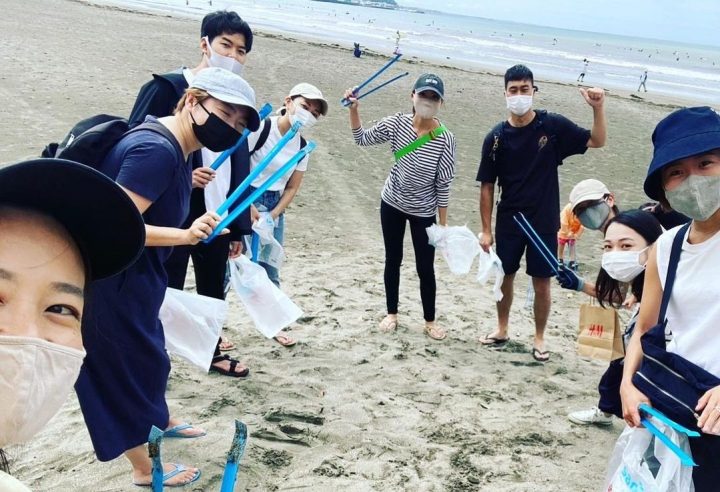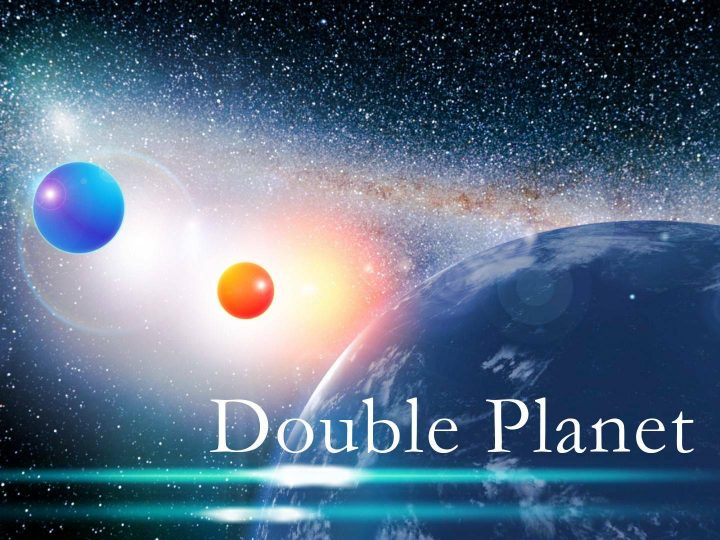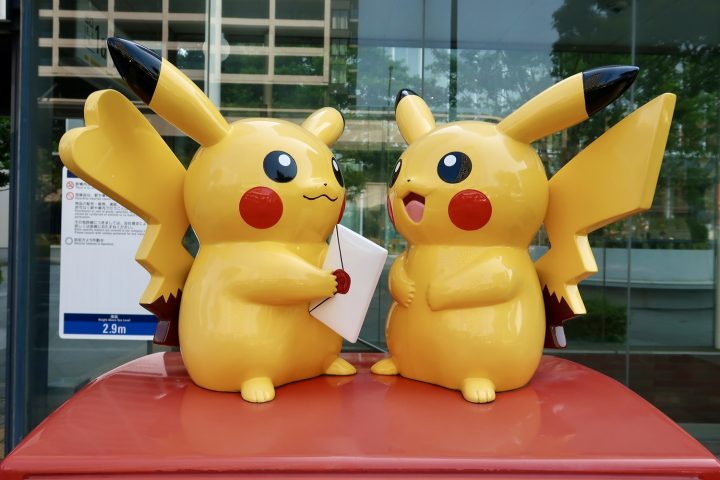Local character and customs are important in mysteries. It seems like anything is possible in Kanagawa Prefecture!
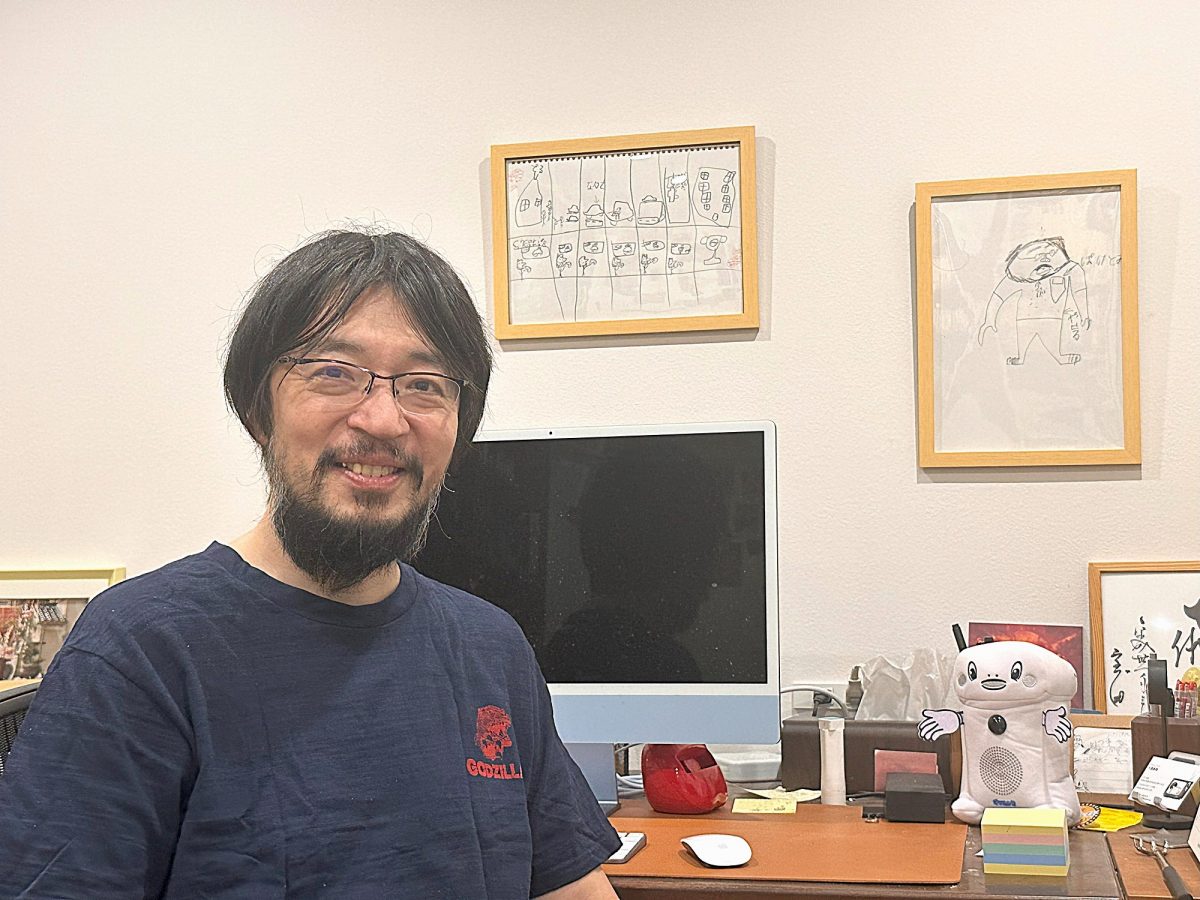
Mystery writer Takahiro Okura is the screenwriter for the 27th film in the Detective Conan series, "Detective Conan: The Million Dollar Five-Pointed Star." He moved from Tokyo to Kanagawa about two years ago and has been writing from his home ever since. We spoke to Okura about his film scripts, novels, his hometown of Kyoto, and Kanagawa.
--First of all, congratulations on the huge success of "Detective Conan the Movie: The Million Dollar Five-Pointed Star"! It's a record-breaking hit, grossing 15.4 billion yen and attracting over 10.8 million viewers. Please tell us about the thoughts that went into this film.
Okura: Thank you. When it gets to this scale, it goes beyond the realm of personal desire, and it's just a matter of whether the people who look forward to the one movie a year are happy with it.
This is my fourth project, but when I accepted the first one, it wasn't on this scale, so I took it on fairly easily (laughs), although it was still on the scale of over 6 billion yen.
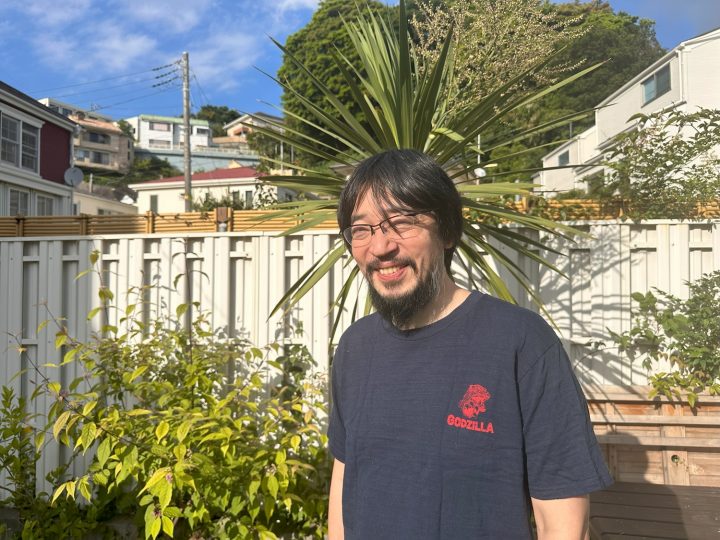
--In the "Detective Conan" movie series, the setting of the story often plays an important role. This film is set in Hakodate, but your first film, "Crimson Love Letter," was set in Osaka and Kyoto. Okura-san, you're from Kyoto, so was there anything you were particularly conscious of about the film being set in your hometown?
Okura: In "Kara Kurenai no Koiuta," Hattori Heiji, who also appears in this work, was decided to be the main character, and since he was from Kansai, known as the "great detective of the west," it was naturally decided that the story would be set in Kansai. On top of that, we decided to use karuta (Hyakunin Isshu) as a key item, and we specifically chose Kyoto as the location. I used to like Yamamura Misa's suspense series that was broadcast on TV, and it was often set in Kyoto and had a story related to Hyakunin Isshu, so that reminded me of that. So it wasn't particularly a big deal that it was my hometown. As for the script, I was able to write the lines in Kansai dialect from the beginning (laughs).
--Now that we've talked about your hometown, I'd like to hear about your background. Have you loved mysteries since you were a child?
Okura: I get asked that a lot, but I was a kid who never read books at all when I was a child. The more people around me told me to read, the less I read (laughs). However, when I was in my third year of high school, I had a really good teacher who taught me modern Japanese, so I thought, if he said so, I might as well read it, and picked up a book by Akagawa Jiro. After that, I moved to Tokyo to go to university, but my commute was long. To kill time, I felt like reading books again, and at that time, I picked up an Agatha Christie book in a used bookstore that looked interesting. It was so interesting. I guess that's when I got hooked on reading. However, because I started with mysteries, there are many books that are considered masterpieces in the history of Japanese literature that I haven't read (laughs).
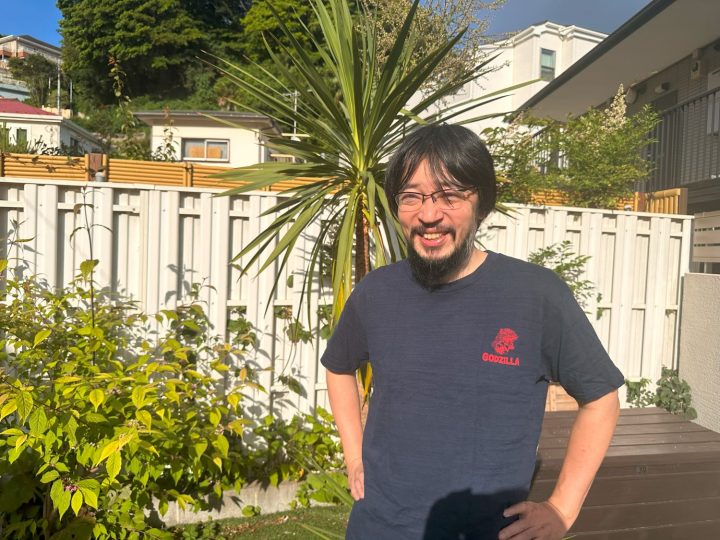
--What is your favorite work? If you could only take one book with you somewhere, what would it be?
Okura: Hmm, there are a lot of works I like... But if I had to choose something that is my roots, it would be Seishi Yokomizo's Gokumon Island. I was shocked to find out that such a well-made mystery existed, and I thought there was no way I could imitate it.
Before reading "Gokumon Island," I had read so-called mystery classics such as Agatha Christie and Edogawa Ranpo, and since then I have also liked more recent works such as Yokoyama Hideo's "64," but if I had to choose one book, it would have to be this one.
--How did you go from being a reader to becoming a mystery writer?
Okura: I've always been an otaku, and when I like something, I'm the type who can't be satisfied unless I dig deep into it. So after I got into mysteries in my first year of university, I read about two books a week, and I think I read over 100 books a year. During my university years, which were a year longer than most people, I read over 500 books. Having read so many books, I wanted to try writing myself next. But I wasn't determined to become a writer, so when I graduated, I did a proper job hunt and even joined a company. No one would believe me now, but even so, I changed jobs once and worked as a company employee for five or six years (laughs).
That said, I guess being a company employee just wasn't right for me. After the first year or two, I thought, "I can't do this anymore!" I'd been writing novels here and there after work, but I started writing seriously around the time I changed jobs. You could even say I changed jobs in order to write seriously.
But when I actually decided to write, I didn't even know how to write on manuscript paper, so I happened to come across a novel-writing course and enrolled in it. The lecturer was a famous author who had won the Rampo Prize, and he read and corrected the novels I had written. I received positive feedback from the author, who encouraged me to apply for awards. About two years later, I won a novel-writing award for new writers, had a book published, and from there I received more requests, which is how I got to where I am today. I think I've followed a fairly conventional path as a mystery writer.
--It seems like you became a writer very quickly!
Even though I'm Okura , I failed the award eight times in two years (laughs). I wrote ten stories in two years and finally won the award with the ninth one. The normal pace is one story per year, but I wrote ten, so two years may seem short, but it took quite a while in terms of the number of stories written.
In the past, books were selling better than they are now, and things were better, but if I had known the inner workings of the publishing industry, where many people don't last after their debut, I probably wouldn't have become a writer. I wouldn't have quit my job without a plan. In that sense, I've been lucky to have been able to continue until now (laughs).
--Your works are notable for their unique characters, such as Gidou Kenshin in "Shinigami-san" and Fukuya in the "Detective Fukuya Series." How do you get the ideas for these characters?
Okura: Actually, I don't start by thinking about the characters. I start by thinking about the background, or rather the "frame." Then the character is born from within that.
For example, the inspiration for the "Detective Fukuya" series came from the 1970s American TV drama "Columbo." I've loved this drama since I was a child, and I wondered if I could somehow turn it into a novel, so I started writing. Columbo is a middle-aged man, but if I left it as it was, it would be a rip-off. I wondered how I could change the impression significantly, so I made the main character a woman. So, the framework of Columbo was there, and the character of Fukuya came later.
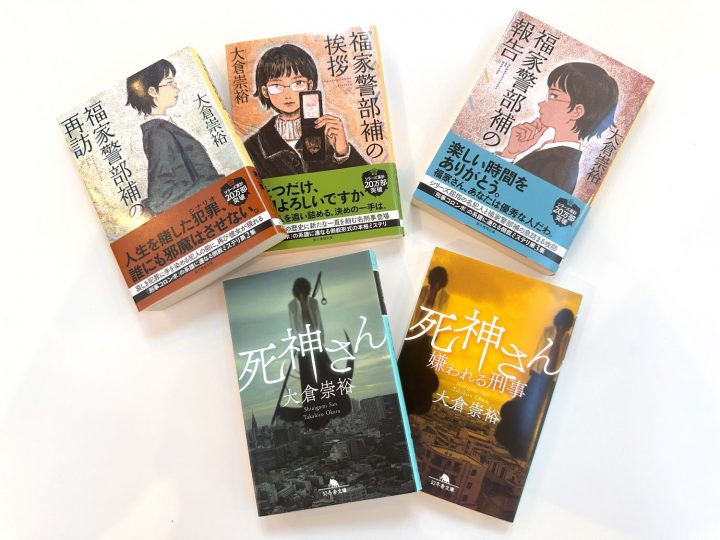
Left: Detective Fuka's revisit (Tokyo Sogensha) Center: Detective Fuka's greeting (Tokyo Sogensha) Right: Detective Fuka's report (Tokyo Sogensha)
Left: Mr. Death (Gentosha Bunko) Right: Mr. Death: The Hated Detective (Gentosha Bunko)
Since the story isn't based on characters, it changes as the story progresses. I like foreign dramas and watch them often, but long-running series take the approach of researching audience demands greedily and constantly changing the characters. Japanese dramas end around 10 episodes, so the initial character settings stick to the beginning, but dramas that take this approach often exceed 100 episodes, and they start to get really interesting around episode 60. This is possible because the characters aren't too rigid.
Sometimes when I accidentally write something unexpected, if the readers like it, I'll make that part more prominent the next time, so I think the characters have changed between the beginning and the latest in the series as elements have been added. I shouldn't say this, but I think it's fine to add characters later if the worldview is interesting (laughs).
-- Writing a script for a work like "Detective Conan," where the world view is already established, and creating a work where you build a world view from scratch, I imagine each requires a completely different approach, but what is it actually like?
Okura: To begin with, the process for writing novels and screenplays is different, so it's necessary to switch between them. Plus, Conan is special, or rather, there are many things that "only Conan can do." Conan's character distribution, or rather placement, is very well done. The mystery genre is also broad in scope. There's always a character that fits what you want to do. For example, if you want a story themed around theft, there's Kid, if you want a political intrigue story there's the Black Organization, for a spy story there's Amuro, and for straightforward mystery solving there's Conan and Kogoro.
In particular, with theatrical scripts, the characters are already decided, and if you use those characters you can do whatever you want, so it's an easy approach. I mentioned earlier about the characters and how novels start from a framework, but the Conan script is the exact opposite approach.
However, even though we have completely opposite approaches when it comes to plotting, I think it's the same when we actually start writing. As I said before, the process or technique is different, though.
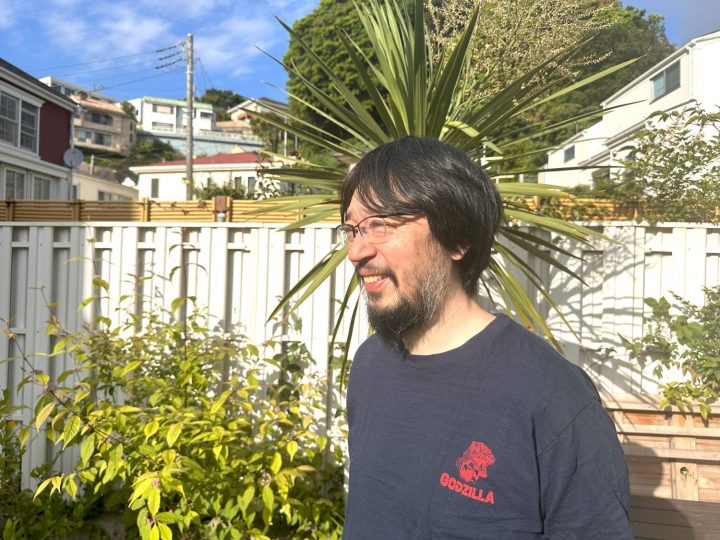
--Some of this overlaps with the question about Kara Kurenai, but do you think the place and environment where you currently live influences your work?
Okura: I haven't written a work set in where I live now yet. If possible, I would like to actually visit the place where I want to set the story. I went to Hakodate, the setting for this Conan film, and the script changed before and after I went. There's a lot to gain from the atmosphere and the stories I hear from the locals. Mysteries in particular are deeply connected to the personalities and customs of the people of the place.
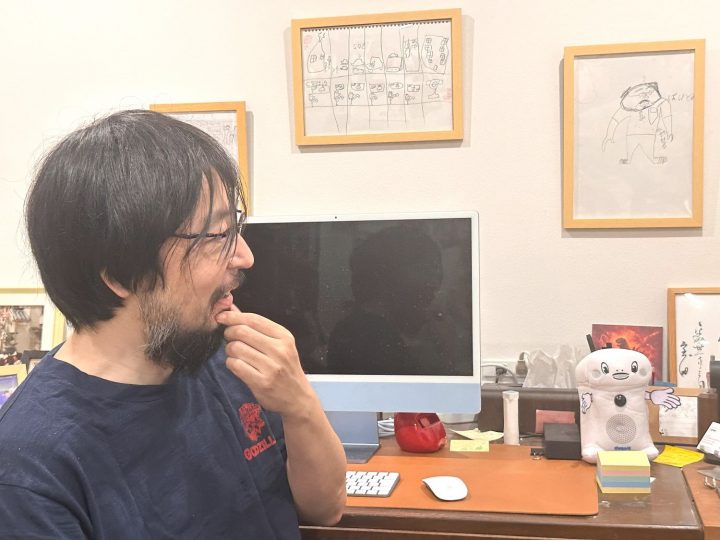
-Finally, please tell us your impressions and attractions of Kanagawa Prefecture from the perspective of mystery writer Okura Takahiro.
Okura: I've only been living in Kanagawa for about two years, and I'm very lazy, so the truth is I don't know much about it (laughs). Kanagawa is so big, isn't it? I used to go camping in Tanzawa with friends, and that's in Kanagawa, right? There are mountains and lakes like Hakone, the sea in Odawara and Shonan, and glittering places like Minato Mirai, so it seems like there's a lot you can do in terms of a mystery. I'd like to put that to good use in my work.
However, I don't often use real place names in my novels because murders and such happen, so some people are happy when a place name appears and some aren't (laughs).
